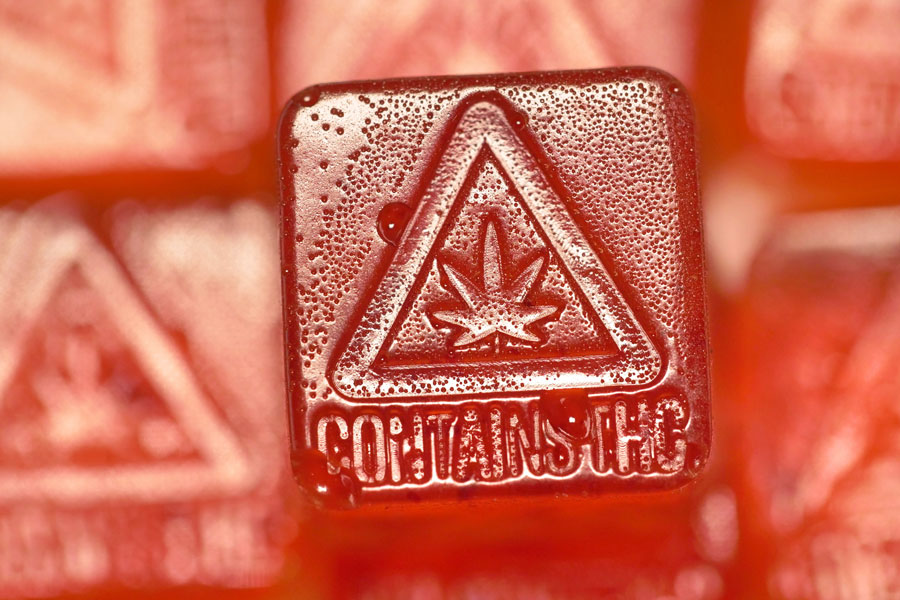
SUFFOLK COUNTY, NY – A 22-year-old Guatemalan national, Wilmer Castillo Garcia, was indicted this week in Suffolk County following an investigation into the sale of THC-laced gummies that led to the hospitalization of 12 William Floyd Middle School students earlier this year. Prosecutors allege the gummies contained tetrahydrocannabinol (THC), the psychoactive component in cannabis, and traced their origin through an Instagram-linked account to Castillo Garcia.
Charges and Legal Status
Castillo Garcia faces a slew of charges including endangering the welfare of a child, two counts of criminal sale of a controlled substance (cocaine and marijuana), and additional related offenses. He entered a not guilty plea and was released on his own recognizance due to current New York bail laws, which prohibit bail for non-violent drug charges – even in complex cases like this one involving a foreign national.
Legal and Public Safety Implications
District Attorney Raymond Tierney expressed criticism over the legal constraints, noting the challenge of ensuring the accused remains available for trial when bail cannot be set. Prosecutors cited concerns over Castillo Garcia’s potential ties outside the jurisdiction as factors that cannot be addressed under existing law. His next court appearance is slated for September 2.
This is yet another example of how New York’s bail laws are broken,” said District Attorney Tierney. “We cannot even ask for reasonable security on a foreign national who allegedly provided THC Gummies that sickened middle schoolers to ensure he faces justice.”
This incident underscores larger issues surrounding New York’s bail framework and its limitations in drug-related prosecutions, especially when minors are involved. It also highlights a growing trend of legal scrutiny over edibles that contain psychoactive substances. Beyond Suffolk County, national enforcement efforts, such as the prosecution and sentencing of a former Guatemalan congressman for facilitating cocaine trafficking, illustrate the broader reach of U.S. law into international narcotics operations.
Additional Details
- Investigation Outcome: The event leading to the indictment began in March after 12 children were treated at Peconic Bay Hospital upon consuming THC gummies. Law enforcement used digital forensics to trace sales to Castillo Garcia via Instagram.
- Legal Framework: In New York, non-violent drug offenses are classified as non-bail eligible, meaning judges cannot set bail regardless of flight risk or foreign national status.
- Potential Penalties: If convicted on the top count, Castillo Garcia could face up to nine years in prison.
Summary at a Glance
| Aspect | Details |
|---|---|
| Defendant | Wilmer Castillo Garcia, 22, Guatemalan national |
| Incident Date | March 2025 — 12 students hospitalized from THC gummy consumption |
| Charges | Endangering welfare of children; sales of THC, cocaine, and marijuana |
| Legal Status | Released on own recognizance; bail not allowed under NY law |
| Next Hearing | Scheduled for September 2, 2025 |
| Maximum Sentence | Up to 9 years in prison |
| Broader Issue | Raises concerns about bail legislation and edibles regulation |
Broader Concerns About THC Gummies
The Suffolk County case comes amid growing concern nationwide over the manufacturing, distribution, and youth consumption of THC-infused gummies. Unlike products sold through state-licensed cannabis dispensaries, illicit gummies are often produced in unregulated settings, where potency can vary widely, labeling is inaccurate or nonexistent, and packaging may be deliberately designed to mimic popular candies. This not only makes them more appealing to young people but also increases the risk of accidental ingestion by children.
Public health officials have noted a sharp rise in incidents involving minors and cannabis edibles. According to recent national data, emergency room visits related to underage consumption of edibles have surged in the past decade, with THC gummies now among the most frequently involved products. The discreet nature of gummies – small, portable, and sweet-tasting – makes them easier for teens to conceal, while social media platforms have increasingly been used to advertise and sell them outside of regulated channels.
Experts warn that the potency of illicit edibles has grown significantly, with some products containing multiple times the THC dose typically allowed in licensed markets. For young consumers, this can lead to severe intoxication, disorientation, anxiety, and in some cases, hospitalization. The combination of high potency, appealing flavors, and easy access through online networks is contributing to what law enforcement and educators describe as a growing challenge in preventing underage cannabis use.


